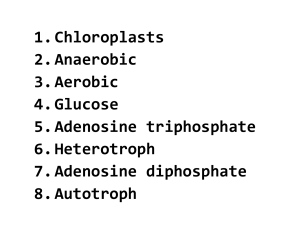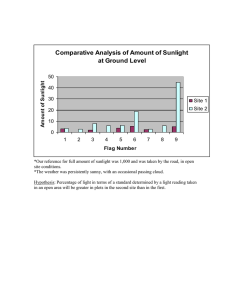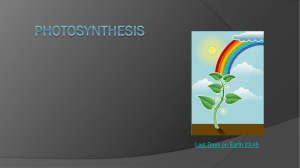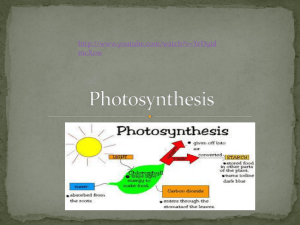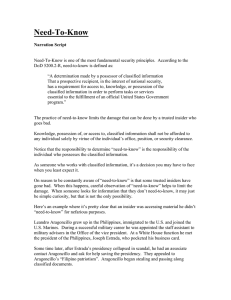Photosynthesis Need-to-Know
advertisement
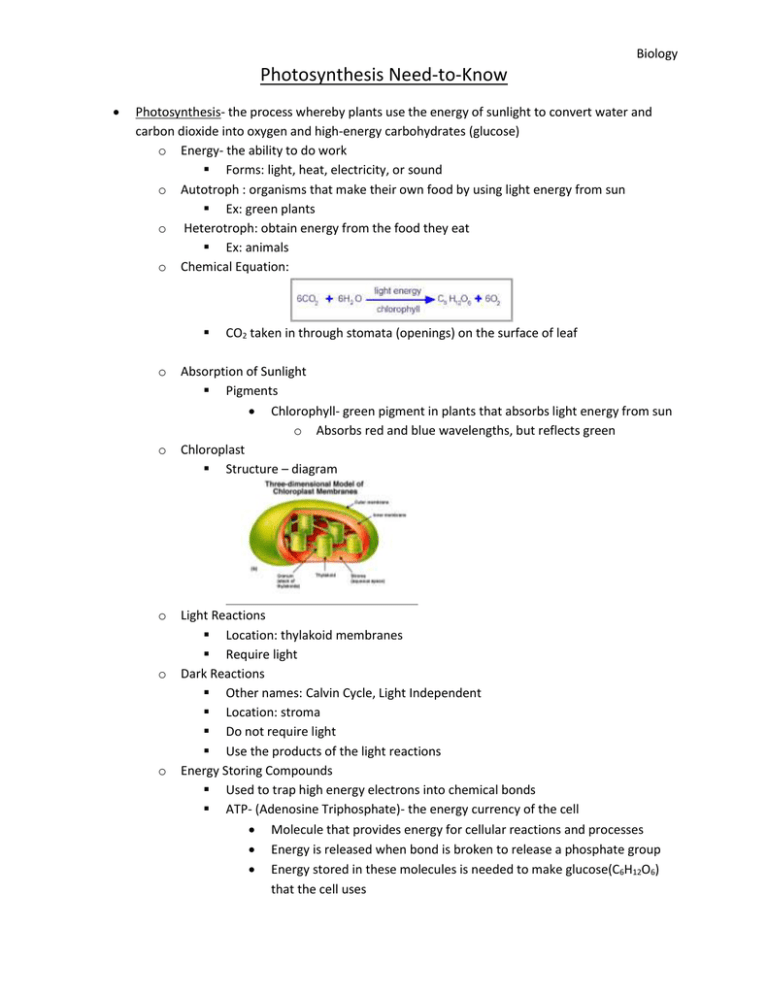
Biology Photosynthesis Need-to-Know Photosynthesis- the process whereby plants use the energy of sunlight to convert water and carbon dioxide into oxygen and high-energy carbohydrates (glucose) o Energy- the ability to do work Forms: light, heat, electricity, or sound o Autotroph : organisms that make their own food by using light energy from sun Ex: green plants o Heterotroph: obtain energy from the food they eat Ex: animals o Chemical Equation: o o o o o CO2 taken in through stomata (openings) on the surface of leaf Absorption of Sunlight Pigments Chlorophyll- green pigment in plants that absorbs light energy from sun o Absorbs red and blue wavelengths, but reflects green Chloroplast Structure – diagram Light Reactions Location: thylakoid membranes Require light Dark Reactions Other names: Calvin Cycle, Light Independent Location: stroma Do not require light Use the products of the light reactions Energy Storing Compounds Used to trap high energy electrons into chemical bonds ATP- (Adenosine Triphosphate)- the energy currency of the cell Molecule that provides energy for cellular reactions and processes Energy is released when bond is broken to release a phosphate group Energy stored in these molecules is needed to make glucose(C6H12O6) that the cell uses
